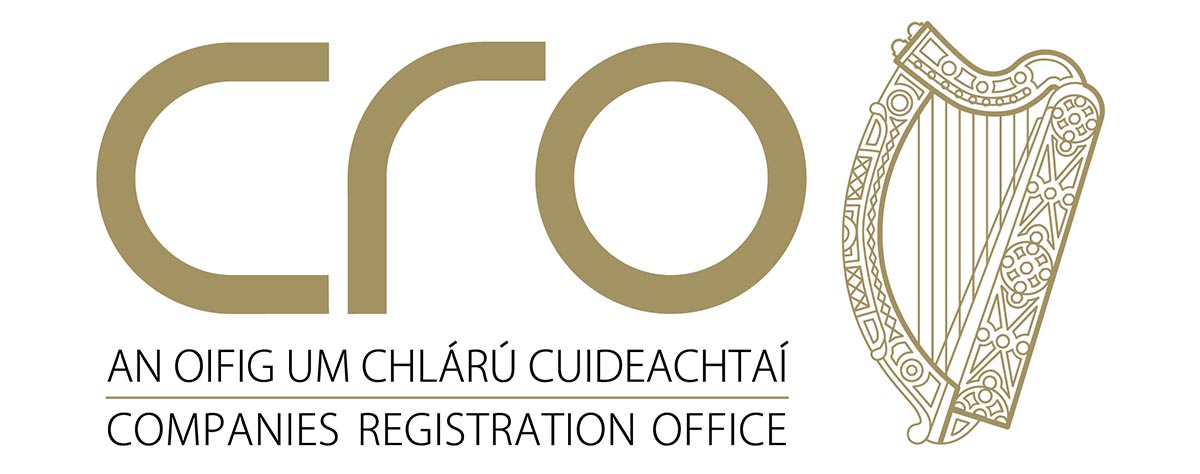Ireland’s business landscape in 2024 presents a dynamic array of opportunities and challenges for entrepreneurs keen on driving economic growth. Encouraged by a resilient Irish economy, businesses operating within this vibrant ecosystem are poised to innovate and expand. However, the key to success lies in adopting effective strategies that accommodate both local market idiosyncrasies and global economic trends.
Moreover, understanding the distinct nuances of the Irish market is imperative for businesses aiming to thrive. A nation known for balancing traditional industries with technological sectors, Ireland’s unique positioning as a gateway to European markets further amplifies its appeal.
Entrepreneurs must navigate this landscape with a blend of incisive innovation and a strong grasp of economic undercurrents to capitalise on Ireland’s business potential in 2024.
Understanding the Irish Business Environment
In 2024, entrepreneurs in Ireland must navigate a dynamic economy, understand stringent legal requirements, and engage effectively with government agencies to succeed.
Irish Economy Overview
The Irish economy is characterised by its openness and is heavily influenced by the global market. For companies operating in Ireland, staying informed about economic indicators such as GDP growth, inflation rates, and employment figures is crucial. The Companies Registration Office (CRO) plays a significant role in the economic framework by maintaining public records and company information.

Legal Requirements and Compliance
Companies in Ireland must adhere to a range of legal requirements, including corporate governance, tax obligations, and employment laws. Compliance is monitored by various bodies, and failure to comply can result in substantial fines or penalties. The importance of understanding and implementing the necessary compliance measures cannot be overemphasised.
The Role of Government and Agencies
The Irish government and its agencies, such as Enterprise Ireland, are instrumental in shaping the business environment. They provide support ranging from financial assistance to advisory services for both start-ups and established businesses. Building a relationship with these agencies can be beneficial for businesses looking to leverage available resources for growth and development.
Setting Up Your Business in Ireland
In Ireland, getting your business off the ground involves selecting an appropriate structure, understanding taxation obligations, and complying with local regulations. These foundational elements are crucial for establishing a sustainable venture on Irish soil.
Choosing the Right Business Structure
Entrepreneurs in Ireland need to decide on the most suitable business structure to meet their needs. Options range from:
Sole Trader: This is a simple structure, but the individual holds unlimited personal liability.
Partnership: Two or more people share profits, losses, and liabilities.
Limited Company: Offers limited liability protection to its owners and is subject to corporate tax rates.
Taxation in Ireland
Ireland’s tax system is one of its most attractive features for business:
Corporation Tax Rate: A competitive 12.5% for trading income.
VAT Registration Thresholds: €37,500 for services and €75,000 for goods, which businesses must monitor closely.
Tax Credits: A range of tax credits can be claimed, such as the Research and Development credit.
It is essential to familiarise oneself with tax responsibilities as outlined on the Citizens Information website.
Navigating the Irish Regulatory Landscape
Adhering to Irish regulations is paramount for all businesses. This includes:
Licenses and Permits: Depending on the industry, certain licenses and permits will be needed.
Employment Law: Complying with the standards set for employees’ rights and conditions.
Business Name Registration: Necessary for all businesses to legally operate.
Marketing and Online Presence
Establishing a robust online presence and leveraging digital marketing strategies are essential for businesses in Ireland in 2024. Success in this digital era depends on how effectively a company can engage with customers online and build a strong, recognisable brand.
Digital Marketing Strategies
To capitalise on digital marketing, businesses must employ a variety of online marketing strategies to enhance visibility and attract their target audience. This includes search engine optimisation (SEO) to improve website rankings, content marketing to add value, and targeted pay-per-click campaigns for immediate visibility. The aim is to create a consistent and compelling online presence that converts visitors into customers.
Engaging with Social Media
Social media offers an unparalleled platform for businesses to connect with customers. Implementing a social media strategy that involves regular posting, interacting with followers, and utilising promotional displays can significantly enhance brand presence. Strategies should be crafted to reflect the brand’s voice and appeal to the intended demographic on platforms where they are most active.
Building a Strong Brand Online
A strong brand presence online is more than just a logo; it’s the entire customer experience. A business must ensure its website design, tone of voice, and customer interactions are consistent and reflect the brand’s values. Crafting an authentic and memorable brand experience can separate a business from its competition, making it crucial to focus on aspects such as user experience and branding.
By assimilating these strategies into their marketing plans, businesses in Ireland can look forward to thriving in the digital marketplace of 2024.
Operations and Business Management
In Ireland’s competitive business landscape of 2024, effective operations and business management are vital for success. Companies must emphasise resource efficiency and innovative human resource strategies to stay ahead.
Supply Chain and Logistics
Supply chain considerations in 2024 revolve around leveraging technology to increase visibility and responsiveness. Businesses in Ireland are adopting advanced tracking systems to ensure real-time logistics monitoring, reducing the risk of delays and disruption. For instance, efficiently ordering tyres for your car park becomes streamlined with integrated supply chain solutions, ensuring timely updates and delivery, minimising downtime for vehicle fleets. Implementing robust supply chain models allows companies to respond quickly to market changes and maintain service excellence. Partnering with reliable providers, such as offering luxury transport for critical events and executive travel, ensures punctuality and a professional image.
Key focuses:
- Real-time data analysis
- Agile response to market changes
- Human Resources and Talent Acquisition
Investing in human resources is critical for nurturing a productive workforce. Ireland’s thriving economy presents both an opportunity and a challenge in talent acquisition. Companies need to attract top talent by building an attractive employer brand. Showing appreciation through thoughtful gestures like gifts for work colleagues can bolster morale and reinforce a collaborative culture.
Crucial aspects:
- Employer branding
- Workforce appreciation
- Achieving Efficiency and Productivity
Efficiency and productivity are the hallmarks of successful business operations. Utilising tools for performance monitoring and continuous improvement strategies can significantly improve productivity levels. Companies are encouraged to streamline processes using automation and cutting-edge software, ensuring optimal use of resources. Attention to ergonomics in the workplace, such as considering comfortable footwear for employees, also plays a role in enhancing overall productivity by ensuring employee well-being.
Key strategies:
- Process automation
- Employee well-being
- Scaling and Growth Strategies
Business expansion in 2024 necessitates a strategic approach that focuses specifically on identifying untapped markets and potential clients, broadening the range of services on offer, and cultivating robust partnerships within a well-connected network. These strategies are particularly pivotal for SMEs operating in Ireland, aiming to fortify their market position and accelerate growth.
Identifying New Markets and Clients
The pursuit of new markets and clients should commence with diligent market research to pinpoint areas with unmet needs where a business can gain a competitive advantage. For example, an SME may discover a growing demand for sustainable products amongst Irish consumers, creating an opportunity to expand into this niche market. Understanding demographic shifts and changing consumer behaviours can lead Irish businesses to tailor their outreach strategies to attract fresh segments of the market.
Expanding Your Service Offerings
Innovation in service offerings is key to retaining existing customers and appealing to new ones. By continually assessing and enhancing their service portfolio, Irish businesses can respond to evolving market trends and customer needs. For instance, a tech SME might integrate AI innovations to provide more personalised customer experiences, thereby distinguishing their services in a crowded industry.
Partnerships and Networking
Strategic alliances can significantly expedite business growth. Engaging in partnerships and expanding one’s network opens avenues for shared resources, knowledge, and client referrals. By collaborating with complementary businesses or joining industry associations, SMEs can leverage collective expertise and reputation to scale effectively. Networking efforts can also reveal insights into successful scaling strategies utilised by other startups in the Irish business landscape.
Cultivating a Resilient Business
In the dynamic business landscape of Ireland in 2024, resilience is not just an advantage but a necessity for long-term success. Building this resilience involves a blend of strategic foresight, adaptability, and a strong commitment to sustainability and social responsibility.
Strategic Planning for Long-Term Success
A robust business strategy acts as a roadmap for enduring success, encompassing a clear mission, achievable objectives, and a detailed plan of action. Companies in Ireland can benefit from embedding resilience into their strategic plans by integrating a Climate and Nature Fund approach, ensuring that natural resource conservation forms a part of their long-term objectives. Foresight in strategic planning involves not only setting targets but also preparing for multiple scenarios, enabling businesses to navigate through uncertainties with confidence.
Adapting to Economic and Market Changes
The Irish market in 2024 presents a variety of economic changes that require businesses to remain adaptable. This adaptability is pivotal in maintaining continuity during external shocks, such as fluctuations in international trade or sudden technological advancements. Businesses need to focus on resilience, which entails having responsive mechanisms in place, such as flexible supply chains, diversification of revenue streams, and investment in emerging technologies that could safeguard against market volatilities.
Sustainability and Corporate Responsibility
Now more than ever, sustainability is a key component of corporate responsibility that aligns with consumer expectations and regulatory requirements in Ireland. Enterprises are actively reducing emissions, with commitments to lower their carbon footprint in line with the government’s targets. Embracing sustainability initiatives, such as investing in renewable energy or participating in the Climate and Nature Fund, not only contributes to the planet’s health but also enhances company reputation, fostering a positive brand image that is both influential and attractive to conscious consumers.
Resources for Irish Entrepreneurs
In Ireland, a wealth of resources is tailored specifically for entrepreneurs to establish and grow their business endeavours. From networking opportunities to localised business support structures, these resources are imperative for business success in 2024.
Networking and Support Programmes
Networking is invaluable for entrepreneurs looking to exchange ideas and foster professional relationships. Irish entrepreneurs have access to a variety of networking events and organisations, such as industry-specific meetups and dedicated networking groups tailored to the entrepreneurial community. Additionally, support programmes such as those facilitated by Local Enterprise Offices offer workshops, training sessions, and mentorship opportunities to help business owners refine their strategies and operations.
Expert Advice and Consultancy
Expert advice is a cornerstone for business development. Entrepreneurs can seek consultancy from seasoned professionals to gain insights on market trends, financial planning, and strategic growth. Numerous advisory services provider specialised support, including guidance from IDA Ireland, which is instrumental in offering consultancy to businesses looking to scale and enhance their international presence.
Leveraging Local and National Resources
Local resources, such as grants and financial assistance from Local Enterprise Offices, bolster an entrepreneur’s ability to fund and scale their operations. These offices provide pivotal regional support, fostering a conducive business environment. Furthermore, national resources are also at their disposal, with entities like IDA Ireland providing vast networking opportunities, strategic investment insights, and introductions to a global marketplace to Irish entrepreneurs.
